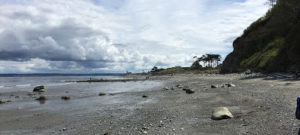
About the Talk
Bluffs and Beaches: Geology on the edge (of Jefferson County)
Puget Sound is best distinguished from other large American estuaries by the pervasive influence of the last glaciation. This glacial legacy includes a steep, irregular coastline, an abundance of coarse-grained sediment, and a shoreline dominated by coastal bluffs. These bluffs are inherently erosional landforms, although the rate and character of this erosion varies greatly.
Bluffs are a key component of a dynamic beach system that supports an incredible array of coastal landforms and environments, including spits and small estuaries. This talk will draw on local examples to show how geologic processes have shaped the modern shoreline and how they continue to do so – sometimes with significant implications for people who live near the shore. The talk will also include observations on how geology is becoming increasingly important to our thinking about how we protect Puget Sound’s shorelines.
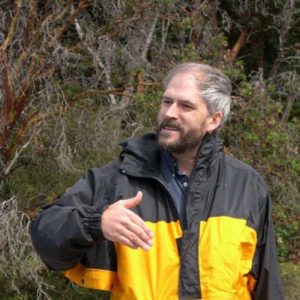 About the Speaker
About the Speaker
Hugh has been a geologist with the Shorelands Program at the Washington Department of Ecology since 1989. His interests include coastal erosion, geologic hazards, and the environmental impacts of shoreline modifications. Hugh grew up near the coast of Maine but moved to the Puget Sound region in 1983.
Visit Hugh’s blogs at:
Gravel Beach – http://gravelbeach.blogspot.com/
Washington Coastal Hazards Resilience Network – http://www.wacoastalnetwork.com/blog

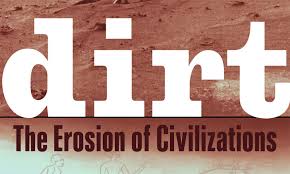


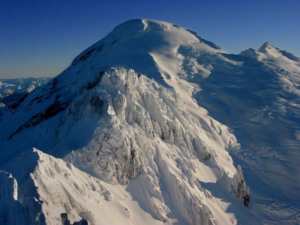 The geologic history of the Mount Baker Volcanic Field is now well documented for the past 3-4 million years. The ice-mantled cone of Mount Baker is but the youngest in a long series of eruptive centers, which includes two calderas (large eruptive cauldrons). The past 10,000 years (the Holocene) has seen a decrease in “constructional” lava flows.
The geologic history of the Mount Baker Volcanic Field is now well documented for the past 3-4 million years. The ice-mantled cone of Mount Baker is but the youngest in a long series of eruptive centers, which includes two calderas (large eruptive cauldrons). The past 10,000 years (the Holocene) has seen a decrease in “constructional” lava flows.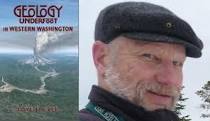 About the Speaker
About the Speaker